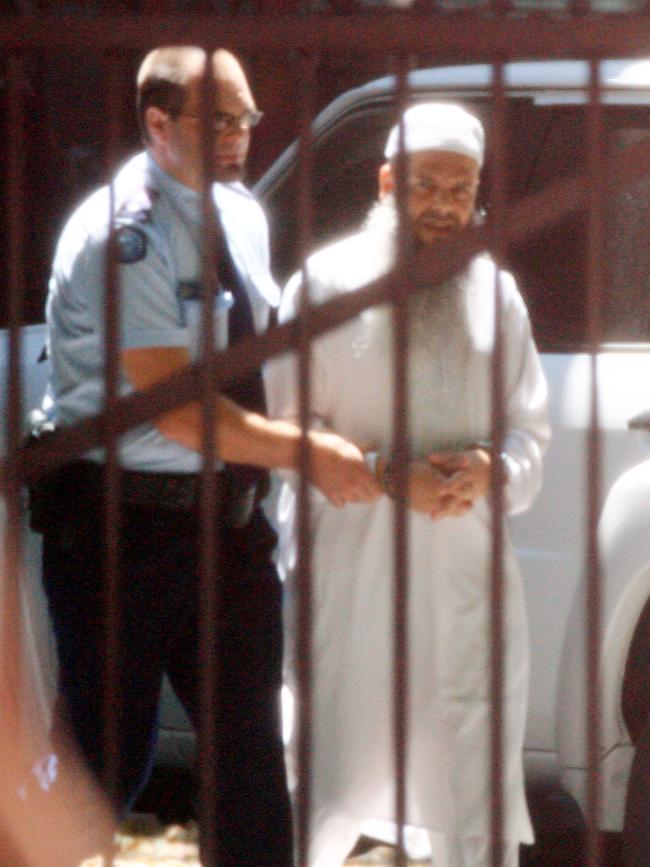Stripping terrorists of citizenship will likely increase risks

This upheld the constitutional requirement that the courts, and not our elected representatives, adjudge guilt and punish people for their crimes. The decision is welcome in striking down an unfortunate law that never should have been enacted. The law should be replaced with a more principled and effective way of combating terrorism.
Parliament changed the Australian Citizenship Act in 2015 to permit the stripping of citizenship from people involved in terrorism. The laws were deeply controversial and provoked strong disagreement within the Coalition cabinet.
A key concern was that the laws could be struck down by the High Court for transgressing the role of the judiciary.
The government nonetheless adopted the reckless course of enacting the laws in the face of an almost certain, and likely successful, constitutional challenge.
One part of the law applies to dual nationals convicted of terrorism and sentenced to jail for three years or more. It permits the minister to revoke the Australian citizenship of that person where the minister is satisfied they have repudiated their allegiance to Australia and it would be contrary to the public interest for the person to remain a citizen.
Benbrika is an Algerian-Australian citizen convicted in 2008 of serious offences including being a member of a terrorist organisation. He was sentenced to 15 years imprisonment. Before his release, the home affairs minister cancelled his citizenship in 2020.
Benbrika successfully challenged this in the High Court, meaning the law has been struck down and he is again an Australian citizen. The decision follows another High Court case last year the struck down a different aspect of the law. The cases send the clearest possible signal that the government needs to go back to the drawing board.
The government might restore the power to strip citizenship by conferring this on a court rather than a politician. This could cure the separation of powers problem and enable the revocation of citizenship for terrorists, and indeed any other person convicted of a serious crime. This, though, would be the wrong course. Stripping a person of their citizenship is more about symbolism and gesture politics than preventing terrorism. The tactic is ineffective and potentially counter-productive, and should be abandoned.
There is a good reason few countries revoke the citizenship of terrorists. They have recognised that cancelling citizenship does not deter terrorism or make the world safer. In fact, it can increase the global threat by placing dangerous people outside the reach of monitoring and control by domestic law enforcement and intelligence agencies.

ASIO has warned of this, saying: “In a globally interconnected world, the location of an individual offshore as a result of citizenship cessation will not eliminate any direct threat they pose to Australian (or other) interests overseas.” The agency also made clear that depriving a person of their citizenship “will not prevent their reach-back into Australia to inspire, encourage or direct onshore activities that are prejudicial to security, including onshore attacks”. The threat to Australia may actually increase because: “In some instances, citizenship cessation will curtail the range of threat mitigation capabilities available to Australian authorities.”
In the case of Benbrika, the loss of his citizenship could mean his deportation to Algeria. Australian authorities would be left with little capability to monitor him and seek to prevent any action he might take against our people or interests. It also could increase the risk of terrorism in Algeria, which lacks the same resources to manage the threat. The net effect might be to increase the risk of terrorism worldwide. Citizenship stripping also risks a tit-for-tat response. Foreign nations have responded to like laws by acting first to strip a person of that nation’s citizenship to frustrate use of the law.
Other nations also might follow Australia’s lead by revoking the citizenship of their own dual nationals who have been convicted of terrorism. This could lead to dangerous offenders being deported to Australia, just as we are seeking to do to other nations. The result could be an increasing number of countries exporting terrorist offenders and a souring of relations between nations.
The High Court has done Australia a favour by striking down laws that represent a serious misstep in the fight against terrorism. Rather than being reinvented as a court-based process to strip citizenship, we should combat terrorism with strong measures that are more effective and less harmful to international co-operation.
Successive governments have championed policies and laws that arm our agencies with extraordinary powers to combat terrorism, including control orders, warrantless searches and covert surveillance. These should be the focus of the fight, rather than a counter-productive gesture to strip Australians of their citizenship.
George Williams is a deputy vice-chancellor and law professor at the University of NSW.







The High Court’s decision to restore the citizenship of convicted terrorist Abdul Nacer Benbrika was straightforward and unsurprising. The court enforced the separation of powers to hold that a minister could not impose additional punishment on someone convicted of an offence.